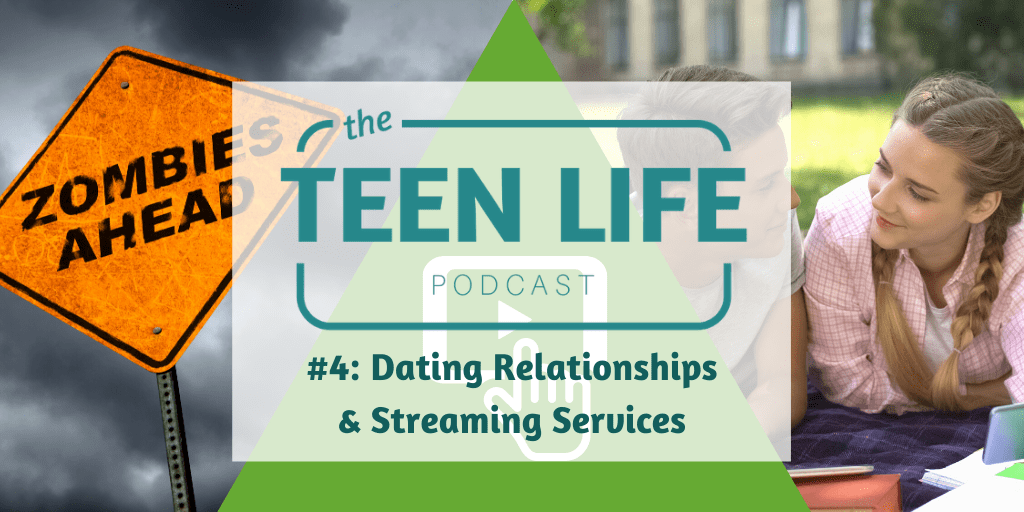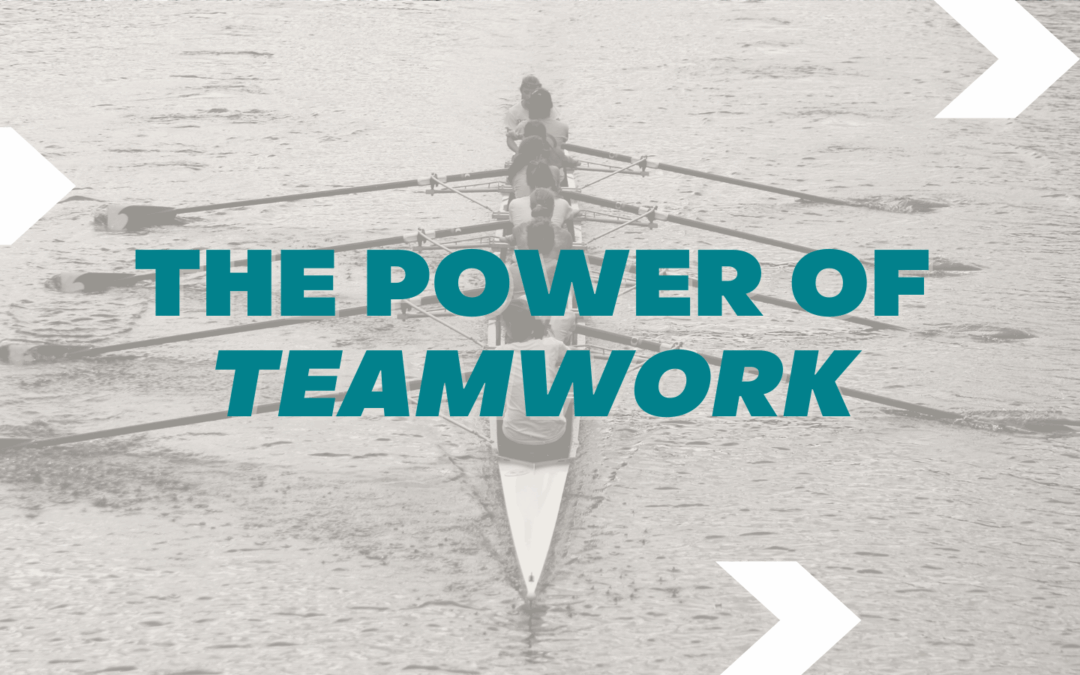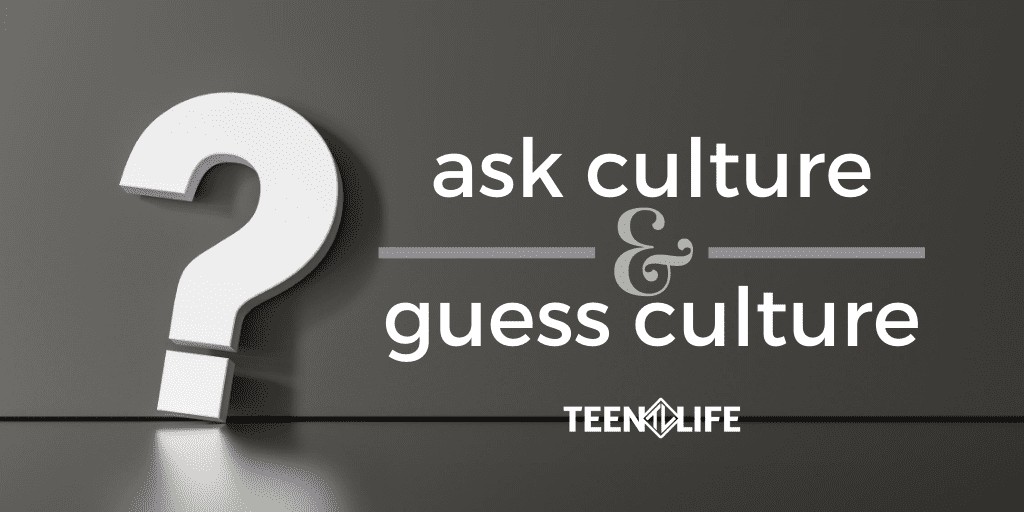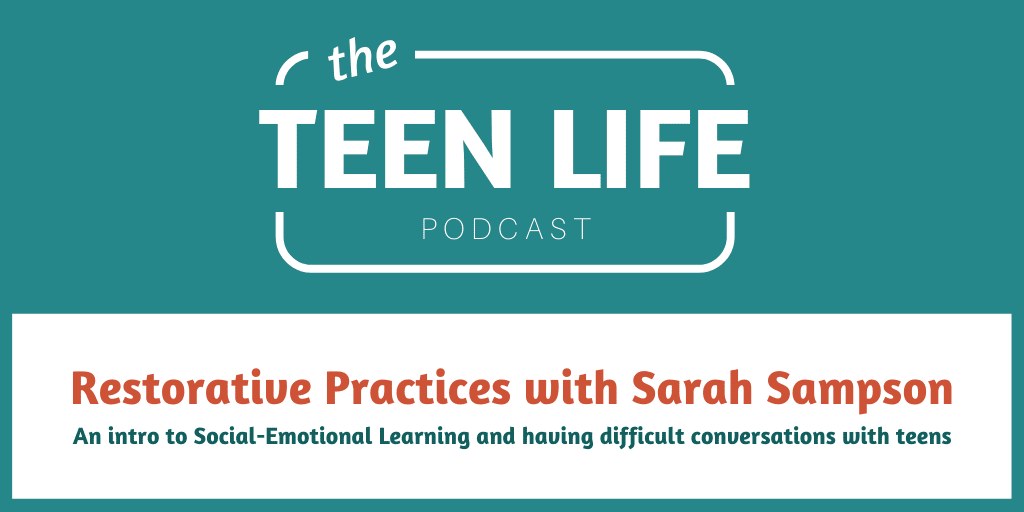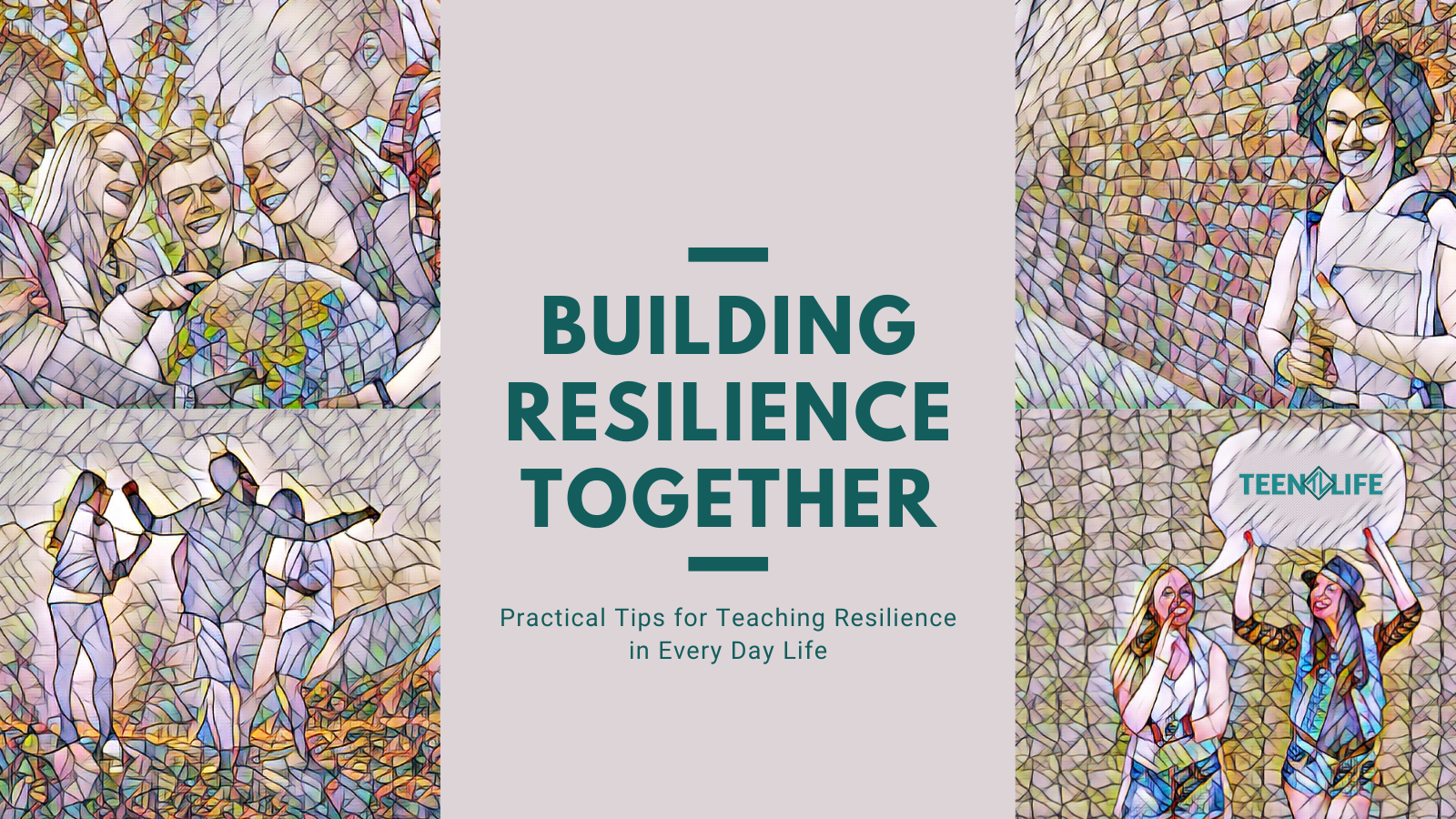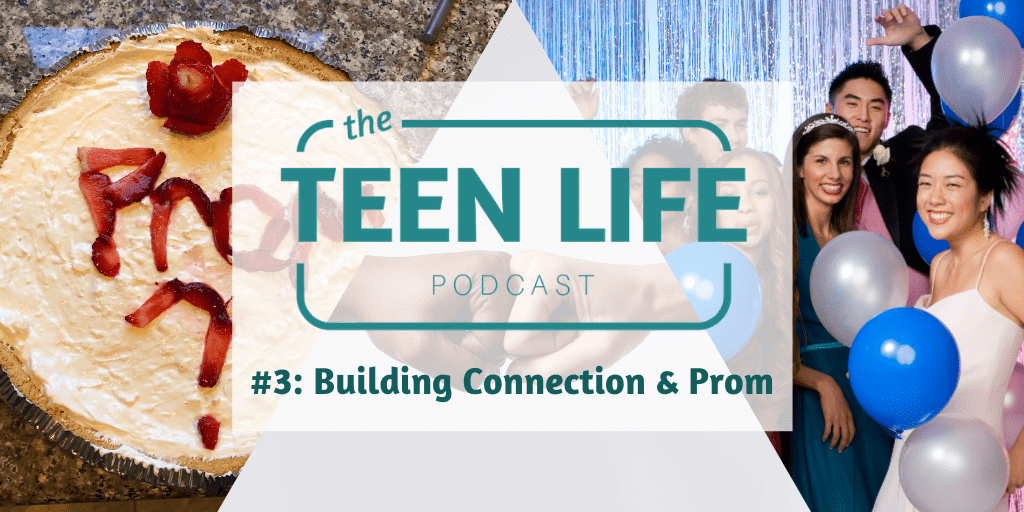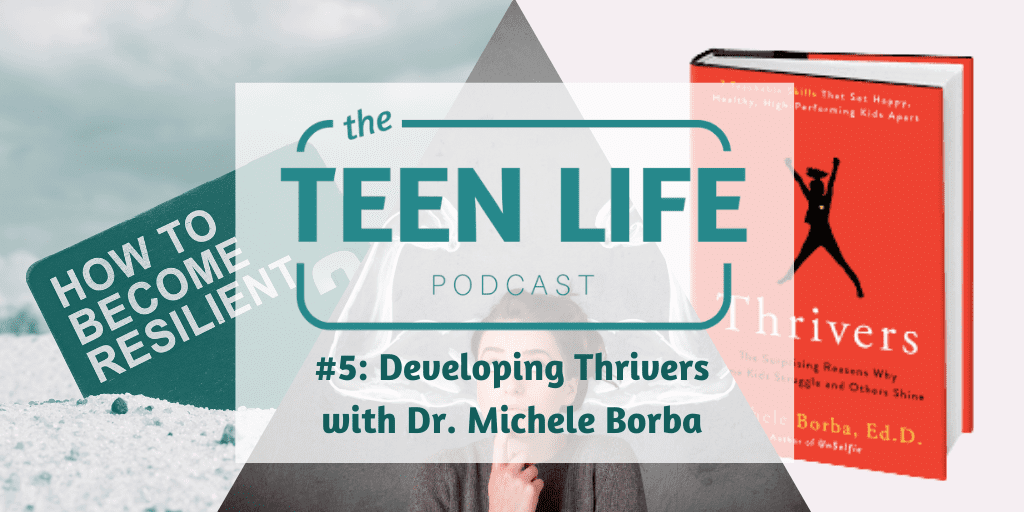
Ep. 5: Developing Thrivers with Dr. Michele Borba
Podcast: Play in new window | Download
What takes a kid from being a “striver” to being a “thriver”?
Dr. Michele Borba is an educational psychologist, best-selling author, and TODAY show contributor who has spoken to over one million participants on five continents and to countless media about child development issues.
This week, Chris talks with Dr. Borba about the 7 teachable traits that, when combined with a caring adult, become the keys to resilience.
Teen Life Summit sessions are no longer available.
In this episode, we mentioned the following resources:
- Dr. Michele Borba: www.micheleborba.com
- Thrivers: Buy the book
- Flow: The Psychology of Optimal Experience: Buy the book
- The Outsiders: Buy the book
- Wonder: Buy the book
- Harry Potter: Buy the books
- To Kill A Mockingbird: Buy the book
- The Grapes of Wrath: Buy the book
- Teen Life Summit: No longer available
- Podcast Music: Luke Cabrera
Have a question?
If you have a question about something you heard or just want to give us some feedback, please leave us a comment below. We would love to hear from you!

Karlie Duke
Communications Director

Chris Robey
Former CEO
Karlie Duke | Director of Communications
Karlie has always had a heart for teenagers. Through her role at Teen Life, she loves to showcase the amazing stories coming out of Support Groups, but she is especially passionate about helping adults and teenagers find connection. Karlie has a BS in Communications with a minor in Family Studies from Abilene Christian University.
Chris Robey | Former CEO
Chris has spent most of his career empowering teenagers from all backgrounds. As the former leader of Teen Life, he is passionate about helping students make good choices while also giving adults the tools they need to communicate more effectively with teens. Chris is a graduate of Midwestern State University and holds a Master’s Degree in Family Life Education from Lubbock Christian University.








